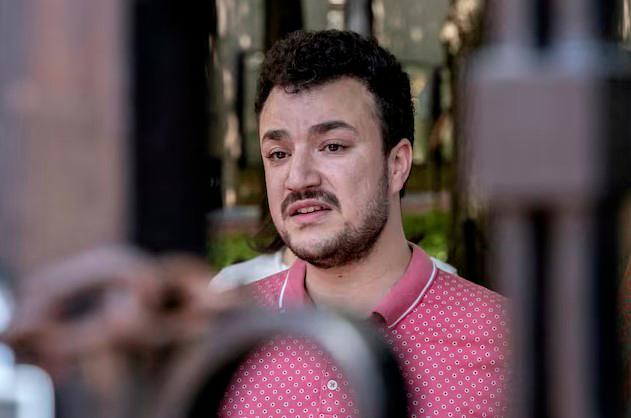JENA (Louisiana): A month after Columbia University student Mahmoud Khalil (pix) was picked up by immigration agents in New York and transferred 1,200 miles to a detention center in rural Louisiana, an immigration judge on Tuesday (April 8) gave the government a day to provide evidence he should be deported and said she would rule on that question on Friday.
“If he’s not removable I’m going to be terminating this case on Friday,“ Assistant Chief Immigration Judge Jamee Comans said during a hearing at the LaSalle Immigration Court in Jena, Louisiana. Khalil was in the courtroom at a table where he could see his attorney Marc Van Der Hout, appearing remotely from California, on a nearby screen.
Department of Homeland Security lawyers told Comans they would provide the evidence by her 5 p.m. Wednesday deadline.
President Donald Trump's administration says it has revoked Khalil's status as a lawful permanent resident under a 1952 law allowing the deportation of any immigrant whose presence in the country the secretary of state deems harmful to U.S. foreign policy.
The U.S. government also has said the pro-Palestinian demonstrator should be forced from the country because he withheld that he worked for a United Nations Palestinian relief agency in his visa application, and also left off the application that he worked for the Syria office in the British embassy in Beirut and that he was a member of the group Columbia University Apartheid Divest.
During Tuesday’s hearing, Comans read the government’s allegations, and Van Der Hout responded with “deny” to each.
The immigration case is separate from a challenge to the legality of his March arrest, known as a habeas corpus petition. A different judge hearing Khalil's habeas petition has ruled that he must remain in the United States for now.
Since Khalil's arrest Secretary of State Marco Rubio has said he has revoked the visas of hundreds of foreign students. The Trump administration says college protests against U.S. military support for Israel have included harassment of Jewish students.
Student protest organizers, including some Jewish groups, say criticism of Israel is being wrongly conflated with antisemitism.
Khalil, a Palestinian born in a refugee camp in Syria, has called himself a political prisoner. His lawyers have argued the Trump administration improperly targeted him for his political views in violation of his right to free speech guaranteed by the U.S. Constitution's First Amendment.
Khalil’s wife, U.S. citizen Noor Abdalla, is due to give birth to their first child “imminently,“ Khalil’s lawyers said in a court filing on Friday. She has not been able to travel to Louisiana to visit him due to her pregnancy. She watched on Tuesday via a court video link.









